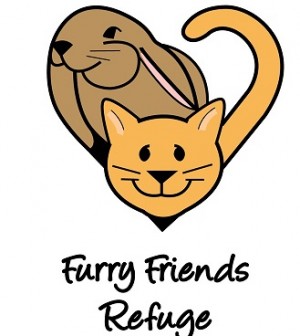- Do you subscribe to Dharma Dog Training’s Newsletter? You should.
- A Unique Campaign from The Humane Society of the United States
- Rabid bats in Omaha- Stay safe, prepared with these tips
- Springtime Activities in Omaha
- Mill Dog Monthly from Bailing Out Benji
- World Spay Day, Legislative Alert in Nebraska
- Attend the Nebraska Rescue Council’s monthly meeting this Saturday
- Five Hard-to-Ignore Reasons to Adopt!
- Paws in Pink to Benefit Breast Cancer Foundation
- VCA, Inc. Acquires MidWest Vet Specialists from Kansas State University
Pet Euthanasia – you’ve got options. Help from Furry Friends Refuge

Euthanasia is often a necessary practice that pet owners must be informed about. When your family pet is beyond the point of recovery and its quality of life is suffering greatly, it’s your responsibility to decide what’s best for your animal as it makes its way toward the Rainbow Bridge.
Euthanasia the peaceful ending of an animal’s life utilizing an anesthetic overdose. Euthanasia should be considered when a meaningful recovery is not available or when an animal is suffering.
It’s sometimes a difficult subject to even think about, let alone actually going through the process of seeing the end of your animal’s life. Hopefully, with the following information, you’ll have an easier time of it. Knowing what to do when the end comes can bring comfort. The unknown is hard to deal with. Many will tell you that the routine, steps, and processes involved have helped them deal with loss. The hardest part is figuring out what to do after your pet is gone- we’ll tell you where to look for help on that, too.
We’ve consulted five businesses, organizations that help pet owners through the process. From how to know when it’s time to what you need to manage grief, we hope to cover a large portion of the process here. Read, share, ask questions- this series is meant to be helpful and informative. Just know there are many choices to make, but many professionals out there to help you along the way as well. We’ll put some of them side-by-side here so you can decide which path to travel.
“To live in hearts we leave behind is not to die”
-Thomas Campbell
We’ve highlighted advice from Nebraska’s largest shelter, the Nebraska Humane Society in Omaha, and are pleased to bring you this information from Furry Friends Refuge, a no-kill shelter in Des Moines. Also, click here to read what Dr. Troy Everson of Omaha’s Pet Clinic has to say about euthanasia at his office.
Furry Friends Refuge practices the no-kill equation, in which euthanasia is truly only a mercy death for an animal that has untreatable medical or behavioral issues. “We believe that it is important to consult with your veterinarian, to help decide when it is or isn’t time,” says Sadye Scott-Hainchek, communications assistant at Furry Friends. One resource the shelter manager and lead veterinary technician likes to recommend is this article: http://www.vetstreet.com/our-
Andrea Touzani, lead vet tech and shelter manager, indicates that every euthanasia is different. “Your veterinarian will usually talk you through the process first so that you know what to expect,” she says. “Every vet’s goal is to make the process as peaceful and painless as possible for your animal and for you.” Usually an I.V. catheter is placed first. If your pet is in a lot of pain from a recent trauma, such as if it were hit by a car, pain meds may be administered as well. Many veterinarians will also use an I.V. sedation drug to calm your pet before the euthanasia solution is administered. Once you’re ready, your vet will slowly inject the euthanasia solution and your pet peacefully “falls asleep.” It is important to understand the process and spend as much time as you feel necessary with your pet if you wish beforehand.
One question many people have when completing the process is, “What can I do with my pet’s remains?” While it’s illegal to bury your pet in your backyard, a lot of people do so, Touzani says. Pet cremation services are very popular. A memorial urn is a nice way of commemorating your animal’s life.
Losing a pet is hard. Touzani suggests looking at photos of your pal and talking with friends or family about your pet. “Take as much time as you need to feel your emotions. There are counseling services that you can utilize. You could also volunteer at an animal shelter and adopt another furry friend when you’re ready,” she says. There is no handbook on how to deal- we all do what’s best in our individual cases.
Any veterinary office can perform euthanasia services. It’s important to develop a relationship with a family vet, we’ve found, and Furry Friends agrees. While some vets work with its local humane organizations and clients to provide grief counseling, you can find grief counseling/support groups on your own as well. Resources in Iowa can be found through this Pet Loss Support Page: http://www.pet-loss.net/
And as each person has his or her own process for grieving, each end of life care service provider has its own suggestions for best practices. Each place is different. “Among shelters,” Sayde of Furry Friends says, “one primary difference when it comes to euthanasia is whether the shelter has adopted the no-kill equation” (which Furry Friends has done). The no-kill equation makes euthanasia an option only when it’s a mercy for a suffering animal, NOT for any convenience for a human being, such as making more space or an animal being in the shelter for too long.
The no-kill movement has found that no matter the demographics of any given area (rural versus urban, wealthy versus lower-income, etc.), 90 percent of the animal population can have its medical or behavior issues treated, and the animal can enjoy a quality life in a loving home.
“Through our research and by hearing from Furry Friends (plus the four other groups that’ll we’ll feature in this series), we can honestly and objectively say your first stop when addressing the initial questions about this time in your pet’s life should be your family veterinarian. Hopefully, with sound advice, introspection, and a close look into all options, you’ll be able to make the best decision for yourself and your furry friend.”
In your time of need, we feel comfortable directing you to any of the people we have and will highlight in this euthanasia series. The Nebraska Humane Society, your family vet, Furry Friends, Road to Home, and Paws to Angels all have competent pet professionals who can help you decide what’s best for you and your animals. It’s our goal to provide you with options and we hope these groups can help you find the right formula to handle this difficult decision.
Related Posts
Latest News
-
How to Make Your Rescue Pet as Comfortable as Possible
Did you bring home a new pet from a shelter...
- Posted 3 weeks ago
- 0
-
How Having A Pet Can Change Your Life
Having a pet can open your heart in ways that...
- Posted 6 months ago
- 0
-
How To Improve The Life Of Your Senior Pet
Do you have an elderly fur baby and want to...
- Posted 6 months ago
- 0
-
Springtime Activities To Enjoy With Your Furry Friends
Are you preparing for warmer weather and want some ideas...
- Posted 7 months ago
- 0
-
Pros And Cons Of Microchipping Your Pets
Have you considered whether your pets should be microchipped and...
- Posted 8 months ago
- 0
-
The Best New Fun Toys For Dogs And Cats
The Best New Fun Toys For Dogs And Cats Did...
- Posted 9 months ago
- 0
-
Heartfelt Ways To Show Your Pet You Love Them
Did you know there are more ways to show your...
- Posted 10 months ago
- 0






















You must be logged in to post a comment Login